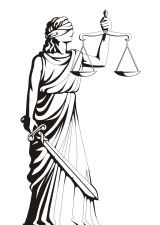Africa Research Centre has just published a study by Dr David Hoile on the International Criminal Court. Coinciding with the ICC’s first ever review conference in Kampala, Uganda, its title, The International Criminal Court: Europe’s Guantánamo Bay? somewhat betrays the mood. “While the ICC presents itself as an international court this is quite simply not the case,” the abstract runs. “Its members represent just over one quarter of the world’s population: China, Russia, the United States, India, Pakistan and Indonesia are just some of the many countries that have remained outside of the Court’s jurisdiction.”
The European Union provides the ICC over 60 percent of its funding. The study argues that with its independence compromised, the selection of judges, “some of whom have never been lawyers, let alone judges” is the outcome of horse-trading among member states. Plus “ICC’s own statute grants special “prosecutorial” rights of referral and deferral to the UN Security Council, or more specifically its five permanent members.”
Could this lead to some discrepancies? “The ICC has ignored all European or Western human rights abuses in conflicts such as those in Afghanistan and Iraq or human rights abuses by Western client states… Despite over 8,000 complaints about alleged crimes in at least 139 countries, the ICC has started investigations into just five countries, all of them African.” The report also accuses the EU of “economic blackmail in tying aid for developing countries to ICC membership.”
Hoile has been accused of acting as a propagandist for the Islamist Sudanese government. He was formerly a researcher for Conservative MP Andrew Hunter, described by the Guardian as a “hard-rightest”. Admitted, it’s in Khartoum’s interests not to be arraigned before the ICC for crimes in Darfur, but however unusual Hoile’s pedigree, he seems to have raised pertinent questions about European double-standards. As the undisputed kings of bodycount, our claim to teach the rest of the world lessons in justice has something of the surreal about it.
Was this article useful? If so we are delighted!
It is freely available because we believe that the right to free and independent information is essential for democracy. But this right is not guaranteed forever, and independence comes at a cost. We need your support in order to continue publishing independent, multilingual news for all Europeans.
Discover our subscription offers and their exclusive benefits and become a member of our community now!












